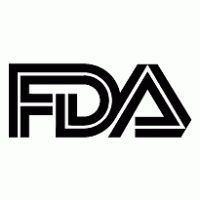Caregivers of Individuals With Phelan-McDermid Syndrome and FDA Discuss Treatment Potential
Nonprofit organizations combined efforts to plan a meeting to inform and educate the FDA and key stakeholders about the experience of caregivers and patients with Phelan-McDermid syndrome (PMS).

Today, the US Food and Drug Administration (FDA) hosted a meeting for families of individuals living with a rare neurodevelopmental disorder to provide perspectives on progressing new treatment options for patients. Nonprofit organizations combined efforts to plan this event with the objective of informing and educating the FDA and key stakeholders about the experience of caregivers and patients with Phelan-McDermid syndrome (PMS).
The Phelan-McDermid Syndrome Externally-Led Patient-Focused Drug Development (EL-PFDD) meeting was sponsored by CureSHANK, a nonprofit organization focused on expediting treatment development for conditions involving the SHANK family of genes. The Phelan-McDermid Syndrome Foundation (PMSF), a nonprofit organization with the mission to improve the quality of life of those impacted by the disease co-planned the event.
Currently, the syndrome lacks FDA approved treatments. In an email interview with HCPLive, Shafali Jeste, MD, Chief of the Division of Neurology, Children’s Hospital Los Angeles, and CureSHANK Strategic Advisor, explained that there isn't one standard of care because providing comprehensive care to manage the various aspects of the condition is the goal.
"That would include, from a neurological perspective, screening for seizures and managing those if a child has seizures," she wrote. "From a psychiatric perspective, if a child has behavioral challenges, sleep issues, mood disturbances, those are all things we'd screen for and manage."
Jeste continued to explain that with Phelan-McDermid syndrome, a patient's primary care physician (PCP) also plays a crucial role.
"Sometimes there can be other medical issues that come up that we just need a good primary care provider to be able to be aware of what Phelan-McDermid is associated with and take care of those issues. I would say the most important thing is to have a neurologist involved with the care because there are so many neurodevelopmental issues associated with Phelan-McDermid," she stated.
When a patient is diagnosed with autism, intellectual disability or global developmental delay, the clinical approach is dependent on whether or not there's a genetic syndrome involved, according to Jeste.
"We know that when there’s a genetic cause like Phelan-McDermid, patients are at higher risk for other neurological issues, especially seizures, so I think it changes the way we would evaluate and manage," she explained. "If a child with Phelan-McDermid is having funny spells and I’m not sure what they are, or showing a regression or loss of skills, epilepsy is going to be high on my list, whereas it might not be with a child who does not have Phelan-McDermid."
While genetic screening at birth has enabled earlier diagnosis in the last 10-15 years, there are still cases that go undetected.
"I think when we make a diagnosis of Phelan-McDermid in a child who previously had a diagnosis of developmental delay or autism, it immediately allows the family to get connected with other families with children who have the same diagnosis," Jeste wrote. "If you look at the landscape of autism, there’s a million patient advocacy groups and there’s so many different avenues they can turn to for resources, and it’s kind of overwhelming."
"Once they have a Phelan-McDermid diagnosis, they can go to CureSHANK or the Phelan-McDermid Syndrome Foundation and get connected to a much smaller, focused group of people who are all facing similar challenges, or are pursuing similar treatment courses," she continued. "So, that’s something that my patients have recognized as a really big benefit of getting a specific genetic diagnosis."
CureSHANK’s President and Co-Founder Geraldine Bliss is a mother and caregiver to her son Charles who lives with PMS. Bliss also shared some insight in an email interview with HCPLive.
HCPLive: What are the most prevalent unmet needs in the PMS space?
Geraldine Bliss: There is a wide range of developmental and health problems in PMS. Most individuals with PMS have severe intellectual disability, resulting in a high level of dependence on caregivers for all activities of daily living. Autism and autistic features are prevalent in our community, and most individuals with PMS have extremely limited communication skills and often have challenging behaviors, including aggression and self-injury.
Epilepsy, gastrointestinal (GI) problems, and psychiatric illness are common, but there are often delays in diagnosing and treating these comorbid health conditions because the signs are confounded by the behavioral features of PMS and because individuals cannot describe their symptoms.
The combination of severe intellectual disability, autism, and difficult medical problems often limits individuals and families from being able to participate in social or recreational activities, contributing to isolation.
HCPLive: How are these comorbidities addressed?
Bliss: Because we do not have any disease-modifying treatments for PMS yet, symptom-based management is the way most of the health comorbidities of PMS are addressed. In my own child’s case, there has been a lot of trial-and-error to find a combination of surgery, devices, and medications to reduce his seizures. We are hopeful that research that is happening right now in academic and industry labs will soon yield effective treatments for PMS.
Speech therapy, occupational therapy, and physical therapy are part of the routine care for most individuals with PMS. Some individuals receive other types of therapy, such as hippotherapy, aquatherapy, or music therapy. Many individuals also receive Applied Behavior Analysis (ABA) therapy, sometimes paired with relationship-based programs, such as Floortime, or as part of a school program.
These therapies can be highly effective for making progress towards discrete goals, but they are costly and time-consuming, and do not address the root cause of PMS.
An important initiative CureSHANK has undertaken to help convey the high unmet need in PMS is the EL-PFDD meeting where our community members will tell the FDA and other stakeholders about the lived experiences of PMS. Caregivers will share the impacts of PMS on quality of life and their perspectives on existing and future treatments.